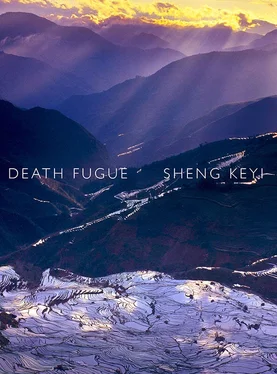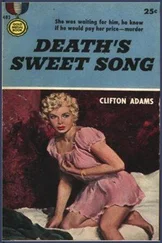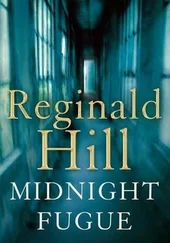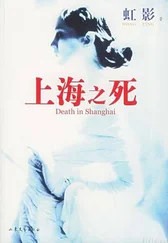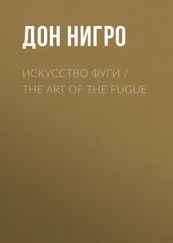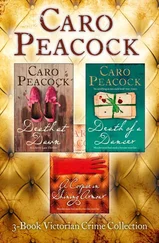On this day, a heavy rainstorm had just passed and the company was again talking of Rania’s death, about what might have been if she were still alive. Mengliu walked quietly away, not wanting to recall the sight of her dying right there before his eyes. The air was fresh and damp in the mountains, the valleys quiet and the narrow path he walked on empty. A scattering of black fungus grew on the side of the path. The leaves on the trees appeared disordered by the storm. Dark thin clouds floated high above, and the vegetation on the hillside changed at intervals, sometimes grass, sometimes bamboo, and whole patches of azalea bushes. There was not a breath of wind. Mengliu’s shoes were soon soaked and the sweat was flowing off him. He didn’t know where he was going. Everything around him seemed desolate. The wind ripped into the warmth of his body. His lips started to quiver violently, and his teeth were knocking together. He wrapped his arms around himself and began to run in this awkward posture. Sweat ran down his face, and his feet exploded the puddles and snapped the twigs beneath them. He was running through the Wisdom Bureau’s sporting grounds. The cries of the girls were ear-splitting as they cheered Hei Chun on. He wore a blue and white sweatshirt, and looked supple as a stallion. He galloped along, stirring up waves and clouds of sand, leaving Mengliu in his wake. He always lost to Hei Chun. This was an indisputable fact. He just didn’t possess Hei Chun’s desperate passion. They had fought once for the sake of a poem, and he had suffered a hard blow from his friend. Hei Chun told him why he had hit him — he believed that fists could make fools a little cleverer, at least for a while. Mengliu had never questioned his own intelligence. His proof lay in the fact that he had been admitted to the nation’s top schools and finally to the Wisdom Bureau itself because he was a champion of the arts. Hei Chun said it was just a silly exam that propelled a stupid fellow like Mengliu to a high position, but he couldn’t change his fate and become just a useless mediocrity. For some time afterwards Mengliu drank alone in crowded bars, not talking and not thinking, just listening to the complicated strains of jazz that wove through the contorting bodies that surrounded him, like the sound of a stream flowing past. He sat there, indifferent. Then the sun would come up and the people dispersed. They had their work, their health, and their sobriety. Their eyes were bright, and they lived contented lives, while his heart was cramped with a sense of loss. Sometimes he thought Hei Chun might be right. A high IQ was nothing in some circumstances, and could lead one to live an impotent life.
But obviously Hei Chun was mistaken, and Swan Valley was proof of that. Not long ago, he had risen to the position of Head of a Thousand Households. Those who prepared the spiritual briefing materials wrote them in a more interesting way than he was used to. They knew he was a poet and were happy to rack their brains and modify their style to try to find an interesting way to express themselves. In the meetings they read the reports as if they were reading poetry, intentionally breaking long sentences into manageable lines, carefully pausing at the right spots and for the right length of time. They put a lot of effort into getting the emphasis right, and they were studious in displaying rich emotions. Some used body language or exaggerated expressions, raising the government work conference to an unprecedented level of literary and poetic showmanship. People loved this format, and some started writing poems themselves, furtively showing them to Mengliu and asking him to ‘feel free’ in his criticisms. He quickly drew every kind of poetry fanatic to himself, and the meetings were transformed into poetry readings. Darae was especially affected. Both his temperament and his talent were like a replica of Bai Qiu’s.
Mengliu recalled an unpleasant confrontation with Darae. Like Bai Qiu, Darae believed that revolutionaries were the greatest poets. Mengliu said that revolution was not something to toy with. From ancient times until the present, many people had gone crazy for revolution, but even after their sacrifice, nothing had changed. ‘You’d be better off going for a Nobel Prize for Literature like Rabindranath Tagore, Neruda, Miłosz…’
Darae smiled quietly. ‘You’re right. When the fascists undertook a war of aggression, Tagore was outraged, ready to sound the battle cry for the fight against the beast in human skin. When the Spanish War broke out against the fascist dictator, it was the outcast Neruda who said, “I must take to the streets, shouting until the last moment.” And as for Miłosz, when the Second World War broke out, he chose not to flee but stayed to take part in the resistance movement.’
Rania had interrupted at this point, saying that a poet could not just sit as a silent observer of life.
Mengliu felt a little ashamed. He thought they were setting an ambush for him. Then Darae said, ‘Some poets are trees, rooted in their own land. Others are birds, flying all over the earth. I wish I could be a bird, living everywhere in exile.’ Against his own conscience, Mengliu said his comments reflected the thinking of a naive student, an expansive fantasy, pure and ignorant idealism. Not being able to return to one’s home was not romantic. Nobody wanted to taste that sort of bitterness.
Streaks of fog were creeping over the hilltop, like the bent backs of a stealthily invading enemy, slowly passing over the weeds and through the dead trees. Mengliu made his way down from Rania’s grave, his face wet and his hair knotted in mist. Thinking of taking a shortcut, he made his way east. He was sure there was a way out there. He was now more determined than ever to leave Swan Valley. He became more and more convinced of its urgency, and grew desperate, scratching and scrambling where there was no way through, rolling and crawling, and when the path was clear, hurrying to push ahead. He did not believe in the secret passage Rania has spoken of, but he needed to find the way by which he had come in. He saw a grey wall in the distance and the glow of the meandering river, with white flowering branches from the bushes dangling over it. The familiar scenery encouraged him. But he couldn’t get any closer to the wall and seemed further from it the more he circled the place. Eventually, he couldn’t see the other elements either, as if they had all been a hallucination. He continued walking through the woods, but he had lost his way.
Just as he was about to look for a place to rest, he heard a strange sound echoing through the forest. Suspecting it was a wild beast, he hid amongst the trees. The continued rustling sound brought three dark figures into Mengliu’s view. One was in front and two behind, as if they were transporting a prisoner. The person in front looked like a nun, wrapped in a black gown that brushed the ground and was caked in mud.
She limped, and her head was wrapped so that he couldn’t see her face. The two people behind followed closely, and seemed anxious and mistrustful. Mengliu thought that the one in black robes had caught a glimpse of him. He retreated, and glued himself to the trunk of a tree. He dared not move or breathe. He heard them stop and talk.
‘Little brothers, I am telling you the truth. Please believe me. I can’t go back. That is not a retirement home. It is hell!’ a quivering voice groaned.
‘Please compose yourself. Don’t talk such nonsense or I’m afraid we’ll have to send you to a mental hospital. You’re old now. Why don’t you want to enjoy the blessing you’ve been given? Why should you degrade yourself like this?’
‘I had to escape…listen to me. This is a place where they burn you alive…See the white smoke from that huge chimney? Beneath it is a crematorium. They stick living people under anaesthesia in there…Oh god, I’m hurt. My leg is broken. Let me go to a hospital. Please, I’m begging you.’ It was the same shaky voice.
Читать дальше
